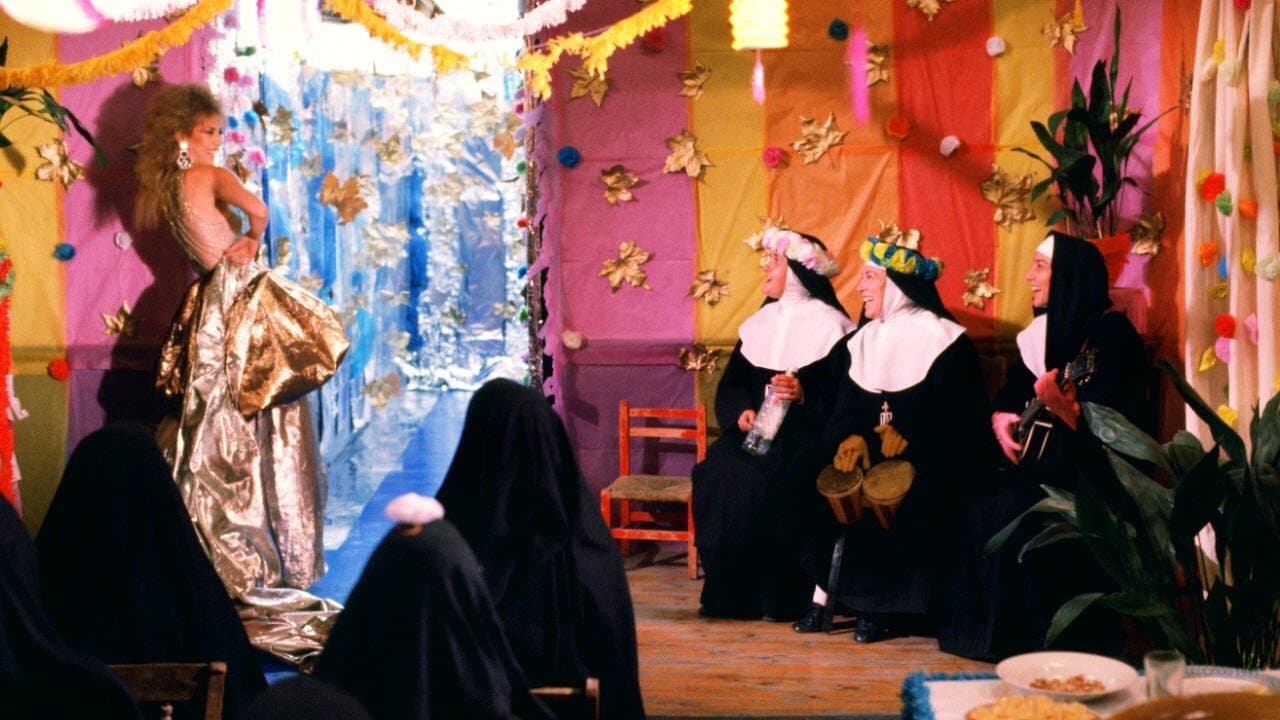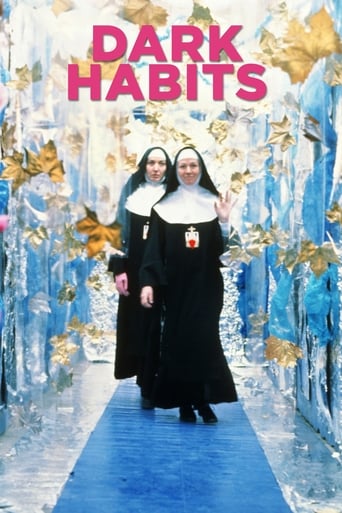

Yolanda sings in a seedy nightclub. When her boyfriend dies of an overdose, she fears the police and seeks refuge in a convent that saves women from the streets. These off-beat nuns include a heroin using abbess who loves Yolanda, one who writes romance novels under a pseudonym, another raising a tiger in the convent yard, and one who designs fabulous fashions and is in love with the local priest.They plan an evening extravaganza starring Yolanda to celebrate the abbess's birthday and to convince their wealthy patron not to abandon them. Very slow moving movie with subtitles.
... View MoreFinally saw this film today. I laughed out loud many times. It's just so wonderfully outrageous. The nuns are played by actresses that went on to play leads in Almodovar's later films: Women on the Verge, All About My Mother, etc. The actress who plays Sister Rat figures prominently, which made me very happy, as she has had mostly very minor roles in his subsequent films. She first came to my attention in Talk To Her. She plays the concierge, and asks the reporter why her tenant is in jail. The reporter says he's innocent. She replies, I know, but innocent of what? She has right-on deadpan delivery that just knocks you out, and it's on full display in Dark Habits.The film is less neatly constructed than Almodovar's later works, and one might say the ending is somewhat messy. Still, it's interesting to compare it to his incredibly polished work of the last ten years. While the uninitiated (to Almodovar) may find parts of it a little shocking, it's not nearly as raw as it would be if it were made today--certainly the lesbianism is tame by today's standard.Other reviewers are right that a lot of the English subtitles miss the ironic tone in the script. But don't let that stop you . . . It's Almodovar! Even second tier Almodovar with inadequate subtitling is better than 99 percent of everything else!
... View MoreI arrived to Madrid in 1982 and stayed there until 1989. Knowing the Spaniard people and their culture was a great experience for me. When "Entre Tinieblas" showed up, I saw it in a theater by El Callao. Still today, 2007, I have not been able to recuperate from this movie. There is no topic of conversation that includes movies that I resist to talk about Almodovar and his "Entre Tinieblas". "Entre Tinieblas" is, in my opinion, the best of Pedro Almodovar. I had fun with this movie since beginning to end and I am still having fun. What a great movie! I believe Almodovars work is great but, "Entre Tinieblas" is extraordinary! Yolanda running away for the convent with the reach lady and the convulsion that the Madre Superiora had is incredible! All, all in this movie is unique. Good Almodovar, GOOD!!!
... View MoreThis film made after Almodovar's first more upbeat outrageous films, is a film that tells of the end of the Movida Madrilenia, a movement existing in the early eighties in Madrid that was defined by a mixture of new romantic punk and pop, and the ironic use of Spanish folklore and the 'housewife' culture. When people in this subculture started to commonly use heroine, the downfall of the movement had begun. This film is about the choices that people had to make at the end of this era. some stayed junkies, others died, some went back to the small towns where they had moved from, others went on to give up on drugs and become more constructive. The convent where the nuns reside can be interpreted as the habitation of this irreverent movement, frequented by police searches, dealers, artists, and junkies. The movie has some great musical moments which indicate that Almodovar might one day take his hand to this genre. The religious element interwtined with (homo)sexuality will certainly be proliferated again in the forthcoming movie La Mala Educacion. The movie also contains a cameo of a Spanish 'Harrold Robbins' type of writer, who is featured sitting at one of the tables wiping her mouth with a handkerchief as Yolanda sings in a night club at the beginning of the movie. This authopr refers to the character of sister Rata de Callejon, who has a secret career as trashy novel writer. The film is somewhat darker than most of Almodovar's early movies, but is very gentle, provides enough comedy and the characters above all remain very human, all of them have their virtues and vices.
... View More